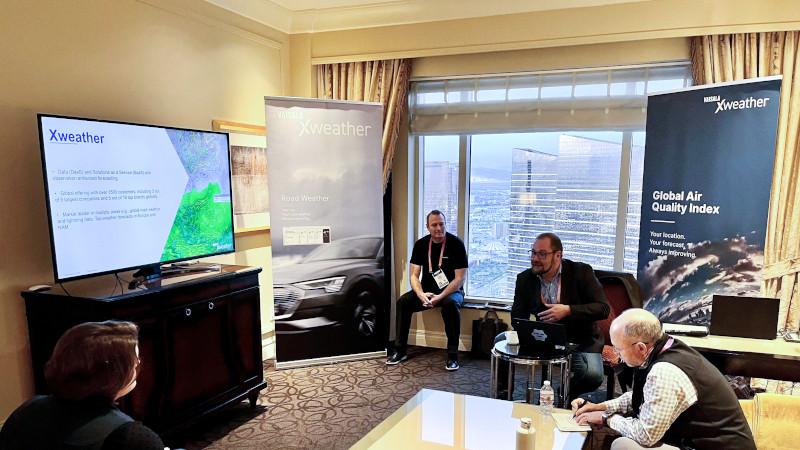Adapt and mitigate: the shift to sustainable technology picks up speed at CES 2023
After a two-year break, I returned to my decade-long tradition of starting the new year with CES in Las Vegas. CES is the biggest consumer electronics show in the world, a showcase for inspiring new tech. To me, it is the best way to start the year. You are surrounded by innovation and, most importantly, you have a chance to meet all the people: old and new friends alike.
Over the years, the focus of CES has evolved from personal computers and hardware to smartphones and software, and, more recently, to IoT and AI. This year, CES was all about sustainability and the automotive industry’s embrace of electric cars and software-defined vehicles.
Consumers are more aware of the environmental impact of their choices than ever before, and they are demanding that companies take action. I love it, both personally and professionally.
By now, it is obvious we must reduce our carbon footprint and minimize our negative impact on the planet. The tech industry plays a significant role here. While tech companies have enormous energy needs for their data centers and manufacturing processes, they also have significant means to create solutions that help address environmental challenges.
I like to approach it from two angles; firstly, how can technology help us cope with the consequences of climate change, and secondly, how can technology prevent further climate change through the reduction of emissions and waste?
Adaptive technology helps individuals, communities, and businesses adapt to the impacts of climate change that are already happening or are expected to happen in the future. At CES, I saw a bounty of adaptive solutions from portable batteries and solar generators to home power backup systems.
Mitigative technology aims to reduce or prevent the emissions that are causing the Earth's temperature to rise. Wandering the show floor, it was impossible to ignore the presence of electric vehicles, e-bikes, smart mobility solutions, and even e-boats.
I was inspired to see so many companies at CES taking action to become more sustainable and make a positive impact on the world by building simply better products. A product worth highlighting is Xbox, the first carbon-aware console.
This is also where Vaisala Xweather comes in. Weather and environmental data have enormous potential to help companies develop and deliver new technologies that address environmental challenges. Xweather data enables early warning systems for extreme weather as an example of adaptive technology. In the automotive space, our road weather data is helping car manufacturers make every journey safer. In terms of mitigation, the rapidly growing renewable energy data sector is using Xweather data to increase the efficiency of wind and solar energy generation. By incorporating hyperlocal weather data into daily operations, companies can maximize resources, reduce waste, and set a higher bar for sustainability in their industries.
Vaisala Xweather is equipping companies with the tools to take impactful environmental action in their domain. We help businesses understand, mitigate, and adapt to extreme weather and climate change with reliable, accurate, and comprehensive data. We believe that easy access to such data is key to solving the challenges of our time.
And so, we start 2023 with our own new year’s resolution – to solve the environment. Together.


Add new comment